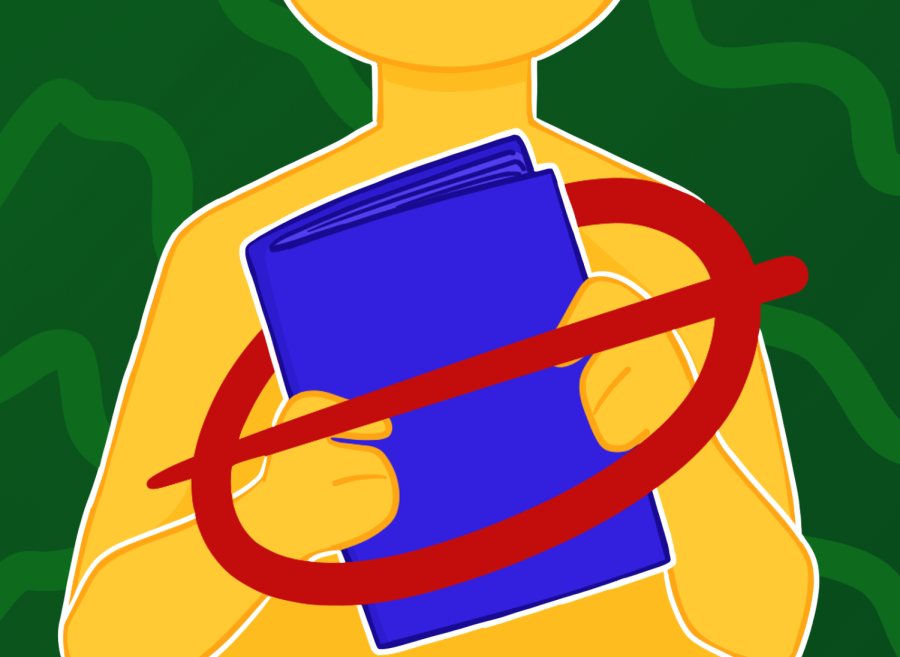Opinion: Banning books bans education
Book banning is censorship and stops important discussions from happening
Censoring books has a historical precident, usually to keep a population of people ignorant and control knowledge. So why is book banning making such a resurgence in states like such as Tennessee, Wyoming and Florida?
March 3, 2022
A student walks into a library, and their eyes immediately catch on a sign that says “most challenged books of 2020.” The books that are listed are some of their favorites. “To Kill a Mockingbird,” “Speak,” and “The Hate U Give.” These books all taught this student a valuable message in their life, something that they’ve held onto and cherished. So, why do people want to ban them? After all, to many people these books are on their way to becoming classics or already are classics.
Book banning is common, not just the US but in many places around the world. According to The First Amendment Encyclopedia, book banning is the most common form of censorship in the United States. The banning of controversial books takes them off of the shelves in libraries, book stores, and even schools reading lists. This effectively stops people from seeing the content that is deemed controversial. Graphic violence, disrespect, and sexually explicit content are common themes for which books are banned. This shelters kids from content that is deemed “unacceptable” and harms students ability to understand the harsh reality of certain situations.
Many problems addressed in books are based on real problems that a lot of people face. One of the most challenged books, “To Kill A Mockingbird” by Harper Lee is based on real challenges that people of color have faced. Yet, it is one of the most banned and challenged books every year due to it’s themes that provide graphic descriptions of racism. These descriptions show a reality that many people face and provide others who have never had to face those hardships that are faced by others a new perspective.
Books that are banned are often challenged because of themes revolving around racism or LGBTQ+ issues. A lot of times these books are actually providing representation for those minority groups. Representation is important for the people who are not commonly seen in the media, and it can help them find the people who they relate to and those who have had similar struggles. If people don’t have representation they can find it hard to fit in and a lot of banned books can help them find solace and a community they relate to.
Banned books that are banned for discussing ideas such as racism, religion or for challenging authority are still important. These books provide a chance for people to become educated on certain topics and start up conversations on topics that can be hard to bring up. It provides a gateway to start these conversations, and allows these conversations to become more normalized and easier to spark a change in society.
Many people who justify banning books, say that it’s because they are too graphic and not suited for anyone to read, especially not younger audiences. Even if the books are graphic and not suited for younger audiences, taking them off the shelves stops information about important topics from being spread to any audience, not just younger audiences. If no one is able to get educated on a topic that is harmful to some, there will never be anyone there to change it because it hasn’t been discussed.
Banning books is very common, but it is also censorship. This censorship is harmful to all populations because it stops valuable conversations from taking place. These books that discuss hard topics are actually more important than others, due to the fact it can lead to the education and betterment of others. Banning books due to their content shouldn’t happen, because there is a difference between hate speech and hard conversations.












